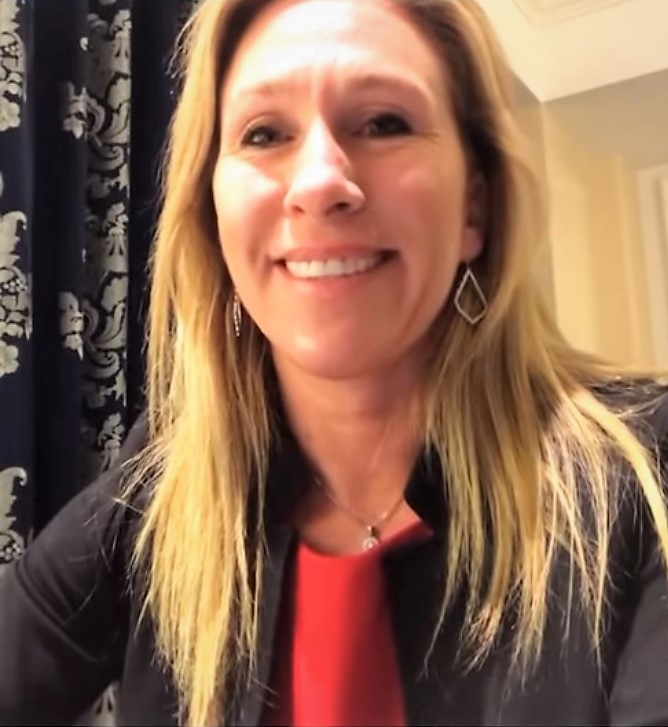Opinion: Marjorie Taylor Greene Controversy Marks Inflection Point for GOP
On Thursday night, the U.S. House of Representatives voted to remove Marjorie Taylor Greene, a first-term congresswoman from Georgia, from all congressional committees. Greene has previously supported ultra-conservative conspiracy theory movements such as QAnon and Pizzagate. She has claimed that the 2018 Camp Fire in California was caused by “Jewish space lasers,” that the Parkland and Sandy Hook school shootings were “false flags” designed to stoke public dialogue on gun rights, and that Hillary Clinton murdered her political enemies.
The House vote comes after Republican congressional leadership declined to internally remove Greene. California representative and House minority leader Kevin McCarthy called the impending vote to condemn Greene a “partisan power grab.”
Much has been made of Greene’s links to QAnon, the pro-Trump conspiracy group that has entered the public consciousness over the last year. Although QAnon is loosely organized and hard to define, it can generally be described as a set of unproven theories centered around the belief that former president Donald J. Trump is the last defender against a world-controlling group of liberal pedophiles partaking in a global child sex-trafficking ring. This group of theories, once a minuscule set of posts on the internet, has caused violent crimes and threats against President Joseph R. Biden in the last few months.
Yesterday, House Republicans also voted to keep Wyoming representative Liz Cheney in her position as the House Republican Conference Chair. Cheney, who voted to impeach Trump on January 13th, has drawn criticism from some far-right representatives for failing to follow the party line. Other GOP congresspeople, including Senators Mitt Romney (UT) and Lisa Murkowski (AK) have also voiced support for Trump’s impeachment and conviction in the wake of the Capitol Insurrection on January 6th.
At the moment, the Republican Party is on the brink of a schism. Inside of the party, multiple factions ranging from moderate to radical are grappling for control. Since Trump was elected as president in 2016, the GOP has adopted policies that have promoted nationalism, white supremacy, and oligarchy. Now, following a strong national condemnation of Trumpism in the 2020 presidential and senate elections, conservative lawmakers are forced to make a choice between the Trump-supporting alt-right and more traditional conservatism, which has lost support.
The way in which Republican leadership continues to handle Representatives Greene and Cheney will define its political identity going forward. If they support Cheney and condemn Greene, they risk losing the millions of Republican-voting extremists that brought their party to power in 2016. If they decline to punish QAnon crazies like Greene, they could alienate the moderate conservatives that have sustained the party for decades.
Conservative leaders like McCarthy, Romney, and Senate minority leader Mitch McConnell find themselves in this precarious position because they have spinelessly failed to stand up to radical politicians like Trump and Greene. Doubling down and backing Greene through this controversy would commit them to the same dangerous rhetoric and policy.





























